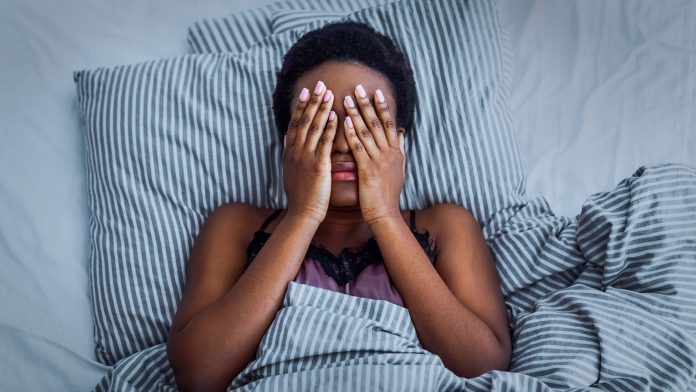Getting quality rest time at night regularly is important for our health and general well-being, experts say. However, according to the Center for Disease Control and Prevention, one in three adults do not get enough sleep regularly.
If you are one of those who have been sacrificing precious sleep time on the altar of “good life,” then you just might be doing so at the expense of your eyesight, as recent studies have proven that sleep deprivation can hurt the eyes in many ways.
Read on to find out the list of eye defects you just might be opening yourself up to.
Glaucoma
 According to The UK Independent, inadequate sleep can increase one’s chances of suffering from glaucoma.
According to The UK Independent, inadequate sleep can increase one’s chances of suffering from glaucoma.
Ophthalmologists describe glaucoma as an eye condition where the optic nerve connecting both the eye and the brain gets damaged. “This condition can lead to total blindness if not properly taken care of,’ they say.
The result of a research using over 409,000 people from a UK Biobank as a case study analyzed participants sleep habits and other factors in a research spanning about 10 years, where 8,690 of them were diagnosed with glaucoma.
The results of the study stated that those who had below seven-hour sleep daily had an 8% higher chance of having glaucoma, while those suffering from insomnia suffered a 12% higher tendency.
High myopia
 Myopia, popularly known as shortsightedness, is a common eye condition that affects a large section of the world population today.
Myopia, popularly known as shortsightedness, is a common eye condition that affects a large section of the world population today.
“About five billion people will be suffering from this sight challenge by 2050,” according to the BMC Ophthalmology.
The article links insufficient and irregular sleep schedules to increased risk of myopia, especially in children and adolescents.
According to the result of a 2019 study carried out in China using school children and adolescents, the researchers found out that myopia was prevalent among students with good academic records and heavy academic workloads.
The study showed that the risk of myopia was higher with every reduction in sleep time.
If not properly managed, myopia can lead to ‘high myopia,’ which can then degenerate into irreversible vision loss.
Anterior Ischemic Optic Neuropathy (AION)
 Lack of quality sleep over a long period can also cause serious eye conditions like Anterior Ischemic Optic Neuropathy, according to the online portal EyeHealth Northwest.
Lack of quality sleep over a long period can also cause serious eye conditions like Anterior Ischemic Optic Neuropathy, according to the online portal EyeHealth Northwest.
“This is a condition that happens when the blood vessels get inflamed and is associated with aging. Over time, optic nerve damage causes an inadequate supply of blood supply to the eyes, leading to permanent loss of vision,” the website warns.
Conclusion
Lack of enough, quality sleep time can lead to serious sight conditions like glaucoma, high myopia, and AION.
If you are wondering just how much sleep is needed, per day, the following is recommended by Medical News Today:
• Newborns (0-3 months) 14 – 17hrs
• Infants (4 – 11 months) 12 – 15hrs
• Toddlers (1-2yrs) 11 – 14hrs
• Preschoolers (3-5yrs) 10 – 13hrs
• School-age children (6-13yrs) 9-11hrs
• Teenagers (14 – 17yrs) 8-10hrs
• Younger adults (18-25yrs) 7-9hrs
• Adults (26-64yrs) 7-9hrs
• Older adults (65 and above) 7-8hrs
If you are suffering from insomnia and need help, consult your doctor without delay!


